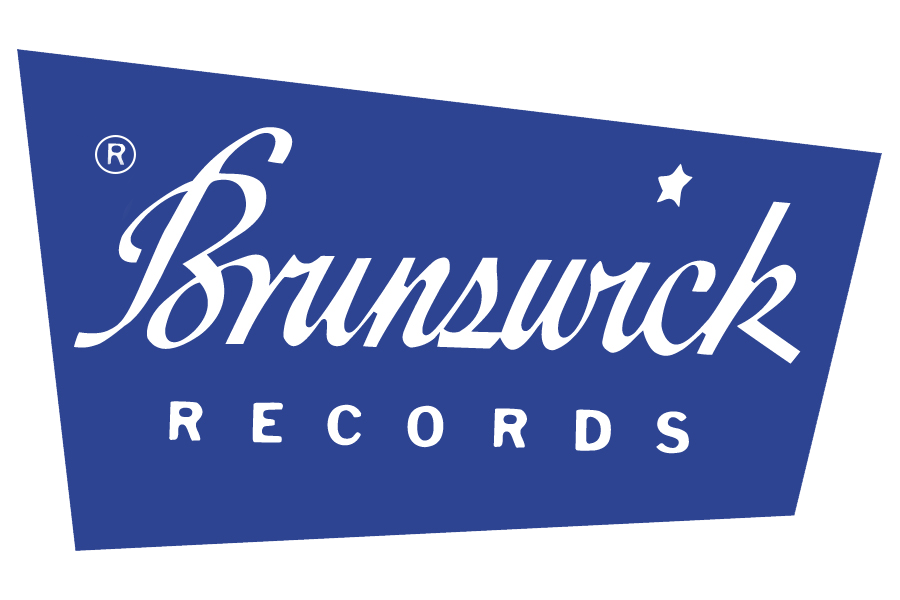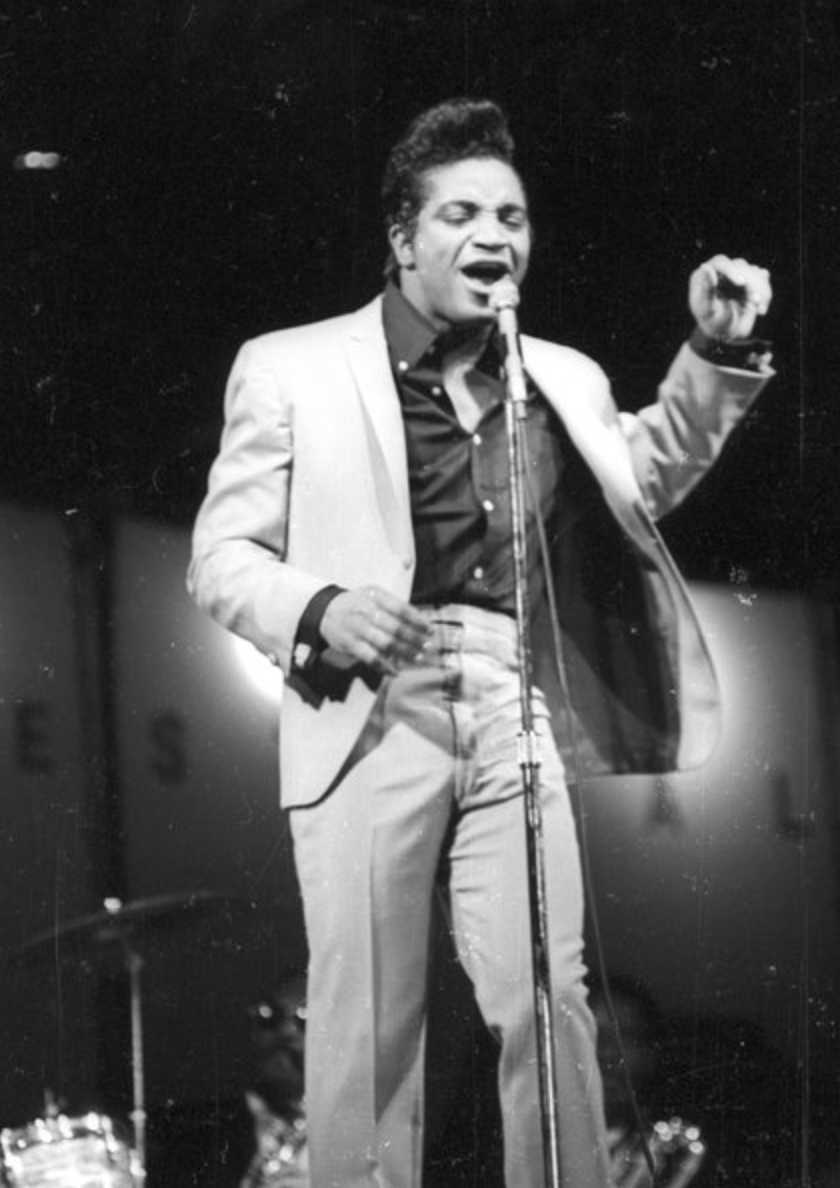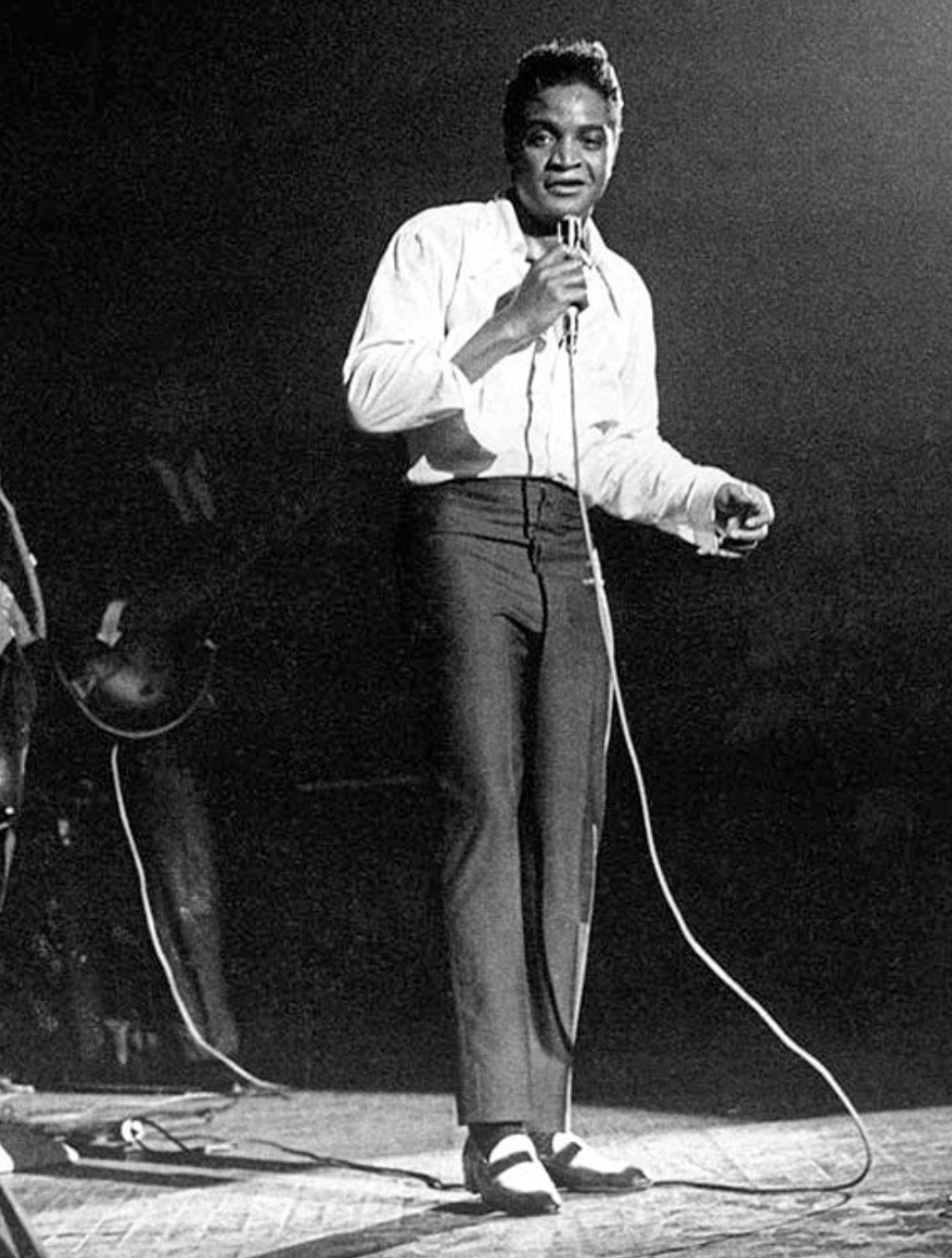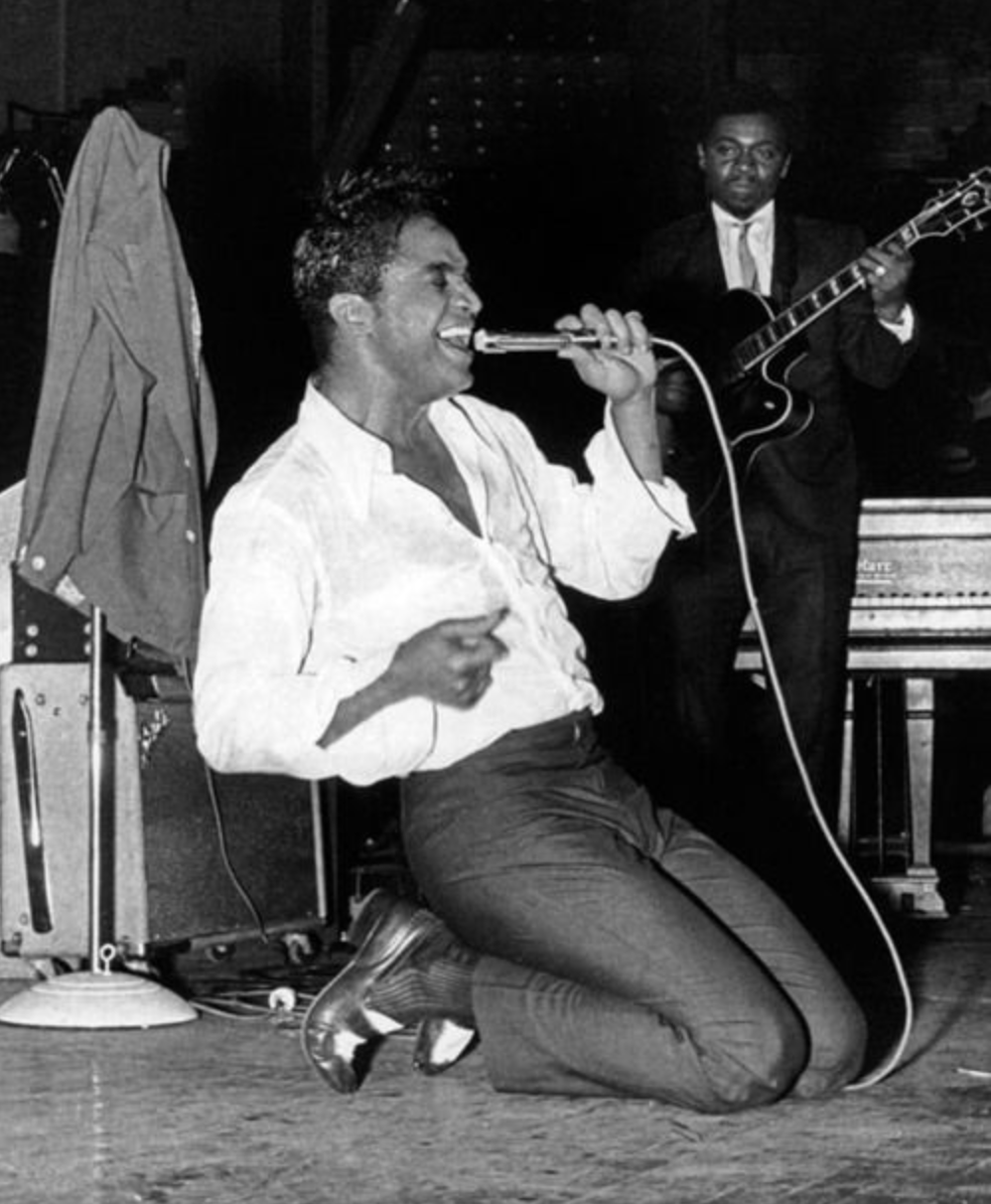
Jackie Wilson
By Harvey Kubernik
Jackie Wilson is one of the most important and influential recording artists of his generation.
He was called “Mr. Excitement.” Jackie possessed dazzling stage moves and a soaring vocal range with a mesmerizing upper register few artists could do in a studio or on stage.
Wilson’s music spanned a variety of genres from doo-wop and rhythm & blues to easy listening standards and rock ‘n’ roll.
Jackie was an electrifying, charismatic showman. He was an agent of race music’s transition from the fifties that would lead to the sixties R&B and soul formats.
“Jackie Wilson was my close friend and was one of the greatest entertainers ever. Hands down,” volunteered Marshall Thompson of The Chi-Lites.
“He had the looks for the people and the girls screaming ‘til their heads fell off. The greatest dancer to ever hit a stage!”
“Just listen to his voice. Who has those three and a half octaves and that incredible operatic instrument,” suggested music journalist, Kirk Silsbee. “And, who is gonna do on stage what Jackie did?
“Jackie Wilson was also employing things that seemed to defy human possibility in his stage moves.”
“Jackie was the first artist at the Apollo Theater to make audiences rush the stage,” stressed Bobby Schiffman, the former owner of the famed Harlem venue.
Jackie Wilson became a mainstay of the R&B and pop charts from 1958 to 1970, where he amassed two dozen Top Forty singles. All of his classics were released on the landmark Brunswick Records label under the direction of future label president and record producer Nat Tarnopol, who initially served as Wilson’s manager and was a crucial force in shaping R&B music in that period.
Jackie Wilson has been inducted into the Rock And Roll Hall of Fame and The R&B Music Hall of Fame.
Jack Leroy Wilson Jr. was born on June 9, 1934 in Detroit, Michigan. Wilson began singing in a gospel quartet called the Ever Ready Gospel Singers and was a member of the Shakers Street Gang. In 1953 he joined Billy Ward and his Dominoes, eventually becoming lead singer of the vocal group, replacing Clyde McPhatter.
Wilson launched his solo career in November 1957 with his debut single “Reet Petite (The Finest Girl You Ever Want To Meet)” which entered Billboard magazine’s pop chart in November 1957.
In 1958 “To Be Loved” became popular in the R&B market, while “Lonely Teardrops,” a ballad turned pop rock masterpiece as arranged by Dick Jacobs in 1959, was a Top Ten selection across many retail charts, followed by “That’s Why (I Love You So)” and “I’ll Be Satisfied.”
Several Wilson-waxed tunes were co-written by Berry Gordy, Jr., a songwriter who hadn’t yet founded Motown Records.
In 1994, Rock And Roll Hall Of Fame member Gordy published his autobiography To Be Loved, named for one of the compositions he penned for Wilson.
“The most natural artist I’ve ever seen in terms of dancing, vocals,” Gordy told me in a 1994 interview for HITS magazine. “His voice was the strongest. He could do opera, he could do rock, he could do blues.
“He never sang a bad note. Maybe a bad song, but never a bad note,” explained Gordy. “One of the most talented artists I’ve ever seen. He was more dynamic live than on record. And he could dance, and could do flips and splits.
“Jackie was Jackie, the most natural, innate performer, probably, that I’ve ever seen. Jackie was an original. And he should be rediscovered. Because he created stuff and he could wink on cue…He could do things, do a spin, and then wink at the girls.”
“In the very late fifties there was a week of deejay Alan Freed-hosted stage shows at the Brooklyn Paramount. Jackie was on the bill. I was very excited,” remembered multi-instrumentalist, songwriter and Blood, Sweat & Tears group founder, Al Kooper.
“The first single I bought by Jackie Wilson was ‘Reet Petite.’ I heard it on the radio. I loved it. And then I continued buying Jackie Wilson. Because I liked everything he did on Brunswick.
“Jackie was unbelievable. He did stuff like pushing the microphone forward towards the audience and control it with his feet, the bottom of the mike stand. So he would like push it out and it would go like it was gonna go and fall all over the audience. And then it would snap back without him touching it. I never saw anybody else do that. It was incredible.”
“Jackie never took the microphone out of the holder. He worked the mike stand in every possible way that it could be worked. And it was just amazing.”
“I first saw Jackie Wilson (and many times after that) at the Brooklyn Fox Theater,” exclaimed songwriter, keyboardist and vocalist Felix Cavaliere, a member of The Rascals, Rock And Roll Hall Of Fame inductees. “He was on an Alan Freed show with lots of musical performers. When I saw Jackie Wilson for the first time, he blew me away. Even today on my tours I still sing a version of Jackie’s ‘Higher & Higher.’”
Author and photographer Roger Steffens also witnessed the magic of Jackie Wilson during 1959.
“Jackie Wilson was one of the most dynamic live performers I have ever seen, up there with Janis Joplin and Bob Marley, but very different from them both. I first saw him at the Brooklyn Paramount in a star-studded Alan Freed review called the Easter Jubilee, co-headlining with Fats Domino and featuring Bobby Darin, Duane Eddy and 15 others.
“In the summer of 1966 I saw Jackie Wilson again, this time in a movie theater in Milwaukee,” recalled Steffens. “Most of the audience rushed toward him with piercing screams as he began to sing. Suddenly his jacket was ripped off his body, then his shirt and his shoes. And, inevitably, his pants, leaving him in his boxers as he never once missed a beat. You could see him holding the mic way over his head until his next line came in and his hand would disappear into the crowd as he sang ‘Lonely Teardrops.’”
“When he fled back onto the stage as the song ended and the bodyguards resumed their duties, glistening with sweat pouring down his chest. He had the mellifluous voice of an opera singer and the attitude of the toughest dude on the block, combined with impeccable, and dangerous, showmanship. I'll never forget him.”
The commercial success of Wilson along with Brunswick’s endeavors steered Jackie into television bookings on Dick Clark’s American Bandstand, The Ed Sullivan Show, Hullabaloo, Shivaree and Shindig! Jackie is also seen doing “You Better Know It” in the 1959 movie Go, Johnny, Go!
Wilson’s music was omnipresent on the hit parade: “You Better Know It,” “Doggin’ Around,” “Night,” “Alone At Last,” “My Empty Arms,” “A Woman, A Lover, A Friend,” (a number one chart entry written by Sid Wyche”) and Baby Workout” (a collaboration between Wilson and Alonzo Tucker of The Midnighters, were all recorded in New York.
Additional Wilson sessions were done in Chicago with acclaimed engineer Bruce Swedien at the board, which yielded “Whispers (Gettin’ Louder),” “Higher and Higher,” “I Get the Sweetest Feeling,” and “This Love Is Real.”
“Jackie Wilson was to be reckoned with from the get-go,” offered deejay and author Andrew Loog Oldham, who managed and produced the Rolling Stones from 1963-1967. “What on earth was this ‘Reet Petite’ when we were barely 15 years old?”
“One of my particular Jackie faves was a platter groove that barely cracked the top 50, a 45 named ‘(There's No Pity) In The Naked City.’ By then I knew the Apple and it became my New York theme song.
“‘Higher and Higher’ was his ‘My Sweet Lord,” suggests Oldham, about the up-tempo tune produced by Chicago-based Carl Davis, who took the multi-track tapes to Bell Sound studio in New York with Nat Tarnopol to record Wilson’s re-worked vocals from the traditional laid-back first attempt.
Writer and author Richard Williams, who interviewed Jackie Wilson in the early seventies on a UK tour, hailed Wilson’s 1967 classic “Higher and Higher.”
“Did any of the countless great records of the sublime ’60s make people feel better than Jackie Wilson’s ‘(Your Love Keeps Lifting Me) Higher and Higher’? Producer Carl Davis instructed Wilson to exploit the energy of the red-hot rhythm track (and) half a century later, it remains an infallible mood-enhancer. For many of us, this masterpiece was our introduction to the Brunswick label, a veteran imprint that soul fans soon recognized as a reliable source of sounds that moved our feet and touched our hearts.”
During 2008, “Higher & Higher” was utilized by Barak Obama as his campaign theme song during his nomination and election as the first African-American President of the United States.
Jackie Wilson also had a devoted following in the Los Angeles area. Russ Regan, the visionary A&R man and former executive at UNI/MCA and 20th Century Records, caught Jackie Wilson’s act in the early sixties in downtown L.A.
“There were shows at the 5-4 Ballroom and The Orpheum Theater. He was amazing. I know Michael Jackson admired him more than any other. I saw a lot of R&B acts and the real artists from 1959-1970.
“First of all, Jackie’s dancing was fabulous,” stressed Regan. “Just incredible, and he had a wide vocal range. The highs and the lows, he had emotion and passion. I later saw Jackie in Atlanta.”
At 20th Century Records, Regan signed Barry White to the company. White, a 2013 Hollywood Walk of Fame recipient, praised Jackie Wilson in his autobiography, Insights On Life & Love.
“While I was still a kid, Jackie Wilson came to the Orpheum in downtown L.A. to do eight shows. I became friendly with the security guard at the back door. He got me into every one of those shows for free. What a privilege it was to see this amazing performer work out! He could roll some notes, man, as well as move with distinction. There was nobody quite like him onstage."
Perhaps a July 1966 live appearance in Hollywood on Sunset Blvd. at The Trip nightclub, reviewed by KRLA Beat reporter Mike Tuck, best described the Jackie Wilson experience.
“Jackie Wilson's voice at first had an almost mocking light pitch to it. His movements were easy, carefree little steps — like those of a man who was celebrating the lifting of a huge weight from his shoulders. He pranced around the circular stage at the Trip and completely ignored its restraining limitations.
“But his original easy pace too confined Jackie Wilson. He had too much inside. It looked as though the man was so desperate in his drive to convey some innate substance that his body lost all earthly restrictions as it gyrated into inhumanly positions. His voice hit operatic summits as he rolled on the floor and struck out wildly with his arms.
“It was more than a show... it was an unforeseen phenomena.
“Jackie Wilson has something a step beyond ESP. He doesn't even seem to try. He just feels something and everyone around him is aware of it and feels it themselves.”
On September 29, 1975, while playing a Dick Clark oldies revue show at the Latin Casino in New Jersey, Jackie Wilson suffered a heart attack on stage while singing “Lonely Teardrops.” He lapsed into a coma, suffering brain damage, and was subsequently hospitalized until his death on January 21, 1984 at age 49 of pneumonia.
At the 26th Annual Grammy Awards held on February 28, 1984 at the Shrine Auditorium in Los Angeles, in his acceptance speech as a multiple Grammy recipient that evening, Michael Jackson saluted Jackie Wilson’s achievements.
“Some people are entertainers and some people are great entertainers. Some people are followers and some people make the paths and are pioneers. I’d like to say that Jackie Wilson was a wonderful entertainer. He’s not with us anymore but Jackie, wherever you are, I’d like to say I love you and thank you so much.”
Events and celebrations in Hollywood like the Hollywood Walk of Fame star ceremony and the ongoing efforts on behalf of Brunswick Records and the Wilson Family continue to acknowledge the saga and sonic legacy of Jackie Wilson.
Jackie’s epic recordings remain in our memories and they constantly reach new ears on the radio, movies, television, and digital universe.
“It was more than a show... it was an unforeseen phenomena”
- Harvey Kubernik
By Ed Sullivan…
It happened in 1957, in Detroit. Young Nat Tarnopol, 26 years old, had set himself up as a theatrical agent in a 1-room office on Woodward Street. The office was not very elaborate. It cost $12 a month, $3 a week!
On this particular afternoon, Tarnopol was awaiting an appointment with a 22-year-old singer, Jackie Wilson, who had sung the lead with “The Dominoes” but had dropped out of the combination to go on his own. Tarnopol asked young Wilson to sing a song for him and Jackie sang “Danny Boy.” That was the start of a spectacular recording combination. In five years, this two-youngster team has come up with 7 Gold Records, starting with “To Be Loved” and proceeding through “Lonely Teardrops,” “That’s Why,” “All My Love,” “Night,” “Doggin’ Around,” and “A Woman, A Lover, A Friend.” I describe Tarnopol and Wilson as a team because they’re bound together by a very impressive degree of loyalty, founded on deep trust in each other. And, there is an additional quality: Tarnopol is a big-time operator. He spends money generously if there is the slightest chance that it will help Jackie Wilson’s career.
One Afternoon, former Olympic ice skating champion Joe Moore and I were riding over New York’s startling Triboro Bridge, on our way back from a round of golf. Moore turned on the car radio and that was the first time I’d ever heard the voice of Jackie Wilson. “Who’s that sensational kid singer?” I asked Moore. “I want to grab him for our show right away.” Moore started laughing: I had to time this just right so you’d hear this recording session today, because I knew as soon as you heard him, you’d grab him.” Jackie Wilson has been a terrific hit on our show in each appearance, as you TV viewers know.
But the two Detroit youngsters had other goals in mind, and by this time, probably they’ve already locked up the date they’ve been working on for some time at Las Vegas, just a s recently Wilson won solo star billing at New York’s famed Copacabana. This Copa date about sooner than Wilson and Tarnopol expected because Copacabana operator Jules Podell long-distanced them and asked if they could move up their date and rush to New York City to fill the vacancy created by the illness of Joey Bishop. In that engagement Wilson tore down the house and after his first show, Podell signed him immediately for dates 3 years in ahead.
“Ed, that was the thrill of a lifetime” Jackie Told me, after his opening show. “When I walked out on that floor, so help me, I was a little bit scared. This was the floor on which Sinatra, Martin & Lewis, Jimmy Durante, Sammy Davis, Jr., Joe E. Lewis, Rosemary Clooney, Lena Horne, Tony Martin, and all of those giants of our business performed.
“I think I must have felt the way a young ball player feels when he shows up in the Yankee Stadium for the first time or steps Madison Square Garden ring for the first time or meets, head-on Arnold Palmer in a golf tournament. It took me a couple of songs to get un-tensed but from then on, I felt so happy and excited that I just sang up a storm.” But I’ll guarantee that all of you who listen to this album, which Jackie Wilson recorded at the Copacabana, won’t detect any trace of “butterflies” in any of his vocal passages. The great ones of our business always are tense, facing each new challenge, but because they’re great, they never exhibit it. This album was made right in the Copa with a regular Copacabana audience jamming the room. Wilson’s all-time idol, Al Jolson, would have told Jackie that this was a top-flight job.
Well, all these fine things couldn’t happen to a nicer pair of youngsters than Wilson and Tarnopol. In the case of Jackie Wilson, he shares his success with a mother, sister and a father who has been able to retire from working in a Detroit factory.
Jackie attended Highland Park H.S., just outside of Detroit and I imagine that every youngster who goes to that school has been reminded by his teachers that if alumnus Jackie Wilson could become world famous, then each of them is entitled to dream his and her own dreams of success. Providing, of course, that they apply themselves as conscientiously as Jackie Wilson has practiced his career.
And if they could locate a manager as dedicated as my young friend Nat Tarnopol, that would be of considerable help, too.





